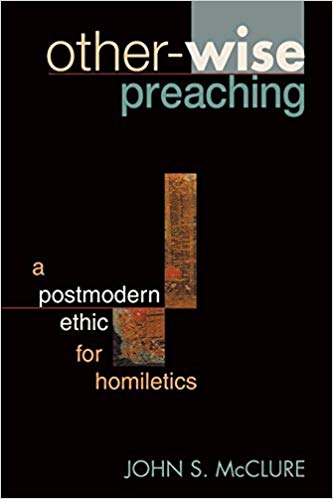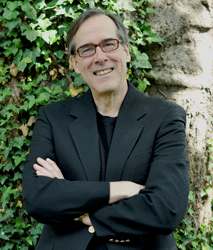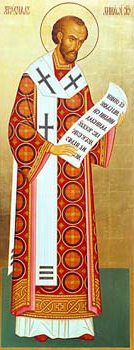|
|

 |

|
책소개-Otherwise Preaching: A Postmodern Ethic for Homiletics
|
|
박희춘 목사
(Homepage) |
2018-08-13 06:52:23, 조회 : 3,883, 추천 : 981 |
- SiteLink #1 : https://divinity.vanderbilt.edu/people/bio/john-mcclure
- Download #1 : otherwise_preaching.jpg (18.8 KB), Download : 63

- Download #2 : john_mcclure.gif (41.2 KB), Download : 66


미국 밴더빌트대학의 설교학교수인 죤 맥클루어교수의 이 책은 제가 아주 신중히 읽은 책이고 제 논문에 포함된 아주 훌륭한 포스트모던시대의 설교학과 수사학관계에 대한 설교학 책입니다. 특히 포스트모던 수사학자(사회철학)인 레비나스의 사상을 설교학에 응용한 아주 깊이 있는 설교학저술입니다. 저에게는 개인적으로 우리의 설교에서 성서를 해석할때 아주 중요한 통찰을 준 책입니다. 이웃사랑, 마치 어거스틴처럼, 모든 성서해석에서 타자에 대한 이해를 포함하라는 충고로 해석됩니다.
저자 John McClure 교수(Vanderbilt대학 설교학교수)는 북미설교학에서의 아주 중요한 설교학교수중의 한 사람입니다.
저는 설교학이 과연 얼마나 학문적 노력에 근거하여 존재할수 있는지를 그의 책에서 배웠습니다. 그리고 설교학의
어떻게 다른 학문과 상관하여 심화하고 발전될수 있는지도 배웠습니다.
Charles G. Finney Professor of Preaching and Worship
Professor McClure's special interests are in the relationships between philosophy, theology, ethics, popular culture and preaching and worship. His publications include The Four Codes of Preaching: Rhetorical Strategies (Fortress, 1991, Westminster John Knox Press, 2003), The Roundtable Pulpit: Where Preaching and Leadership Meet (Abingdon, 1995), Telling the Truth: Preaching About Sexual and Domestic Violence (co-edited with Nancy Ramsay, United Church Press, 1998), Best Advice for Preaching (Fortress, 1998), Other-wise Preaching: A Postmodern Ethic for Homiletics (Chalice, 2001), Claiming Theology in the Pulpit (co-authored with Burton Z Cooper, Westminster John Knox Press, 2003), Preaching Words: 144 Key Terms in Homiletics (Westminster John Knox Press, 2007), Mashup Religion: Pop Music and Theological Invention (Baylor University Press, 2011), Under the Oak Tree: The Church as a Community of Conversation in a Conflicted and Pluralistic World (Co-Edited with Ronald J. Allen and O. Wesley Allen, Wipf and Stock, 2013), and Speaking Together and With God: Liturgy and Communicative Ethics (Lexington Books/Fortress Academic, 2018).
He is a past president (2003) of the Academy of Homiletics, and is co-editor, with Dale Andrews, of the Academy's journal Homiletic. Ordained in the Presbyterian Church (PCUSA), he served as the pastor of Ensley Highland Presbyterian Church in Birmingham, Alabama, and taught preaching for 17 years at Louisville Presbyterian Theological Seminary before arriving at Vanderbilt in 2003
----------------------------------------------------------------------------
책 서평
Lucy Hogan 교수는 북미설교학계에서 전설적인 대모와같은 여성설교학자입니다. 저의 두번째 논문지도교수인
GTU(PSR)의 구약학교수이자 설교학교수인 Mary Turner가 강력하게 읽기를 추천한 설교학자입니다.
Dr. Hogan is a professor of preaching and worship at
Wesley Theological Seminary, Washington, D.C.
아래는 호간교수의 의해 평가된 맥클루어의 Otherwise-Preaching에 대한 서평입니다.
What is preaching? Who are preachers? What are
the relationships among the preacher, the listeners,
and God? What is or what should be the content and
substance of the sermon? Throughout the centuries
we have sought to answer these central questions
and-in the process--either engaged or avoided
conversation with the world beyond the church.
The people of God have been given a text, but
how we read and preach from that text is guided by
a particular theology and method. John McClure,
while attracted to deconstructionism, ("a significant
form of other-directed textual analysis") understands
it to be deficient for preaching because it is not
grounded in the Judeo-Christian tradition.
However,he finds in the work of the phenomenological philosopher
Emmanuel Levinas (d. 1995) an ethical
approach to deconstructionism that has the potential
to enable a deconstructionistlpostmodern preaching.
Building on Levinas's concept of "otherness,"
McClure's project in this book is to develop an
"other-wise homiletics."
As McClure's introduction to the current conversation
in philosophy reveals, the clash between
modernity and its challengers is not always easy to
understand or follow. Yet McClure undertakes the
important tasks of explaining and engaging preachers
in this crucial exchange. Deconstruction breaks
open texts and ideas and exposes their internal
weaknesses, misplaced assumptions about authority,
and inappropriate perceptions of a stable meaning.
McClure challenges preaching to break open
the authority of the Bible, tradition, experience, and
reason. Central to McClure's argument is that it is
not an outside philosophy that questions these false
assumptions. Rather, "it is something preaching does
to itself." What preaching must do is recognize and
come to terms with the reality of its situation.
Central to Levinas's project is the understanding
of the importance of the other. All preaching must
recognize responsibility and obligation to that other.
Therefore, before setting forth his understanding of
preaching, McClure explores four "houses" of the
preaching enterprise: scripture, tradition, experience,
and reason. He claims that we must "exit"
these houses because they have been constructed by
modernity and the Enlightenment, a construct that
ignores the other.
Only after exiting these houses can
we develop a preaching that is always open, constantly
working against the tendency toward closure
and always ready for the other.
McClure offers an important and challenging perspective
when he observes that ultimately there is no
trustworthy text, tradition, experience, or reasoning
ability. We have only the face of others. In later conversations,
he has assured me that after we exit these
houses we can go back in, recognizing that they are
forever altered. But, I must confess that I find that
very difficult to do.
Once we leave the house and go
outside, can we build a new house only with the face
of the other? Is there any shelter from the storms of
life that buffet us? And where is God in this enterprise?
McClure concludes by observing that
preaching simply says, "here I am," here is
a witness of the glory of the Infinite with no
stable theme, with no fixed evidence, nonetheless
commanded by the glory of the Infinite to
become this sign of that which is other-wise.
McClure makes an important challenge to today's
preachers, reminding us that we can never preach
without being attentive to and remembering the
other--our neighbors and strangers. But, while
focusing on the immanent, his approach tends to lose
sight of the transcendent. I hope that, as he continues
this project,
McClure will help those of us who feel
lost and abandoned to find a new home. He shows
us the door out. He needs to show us the door back
in.
|
|
|

 |

|



